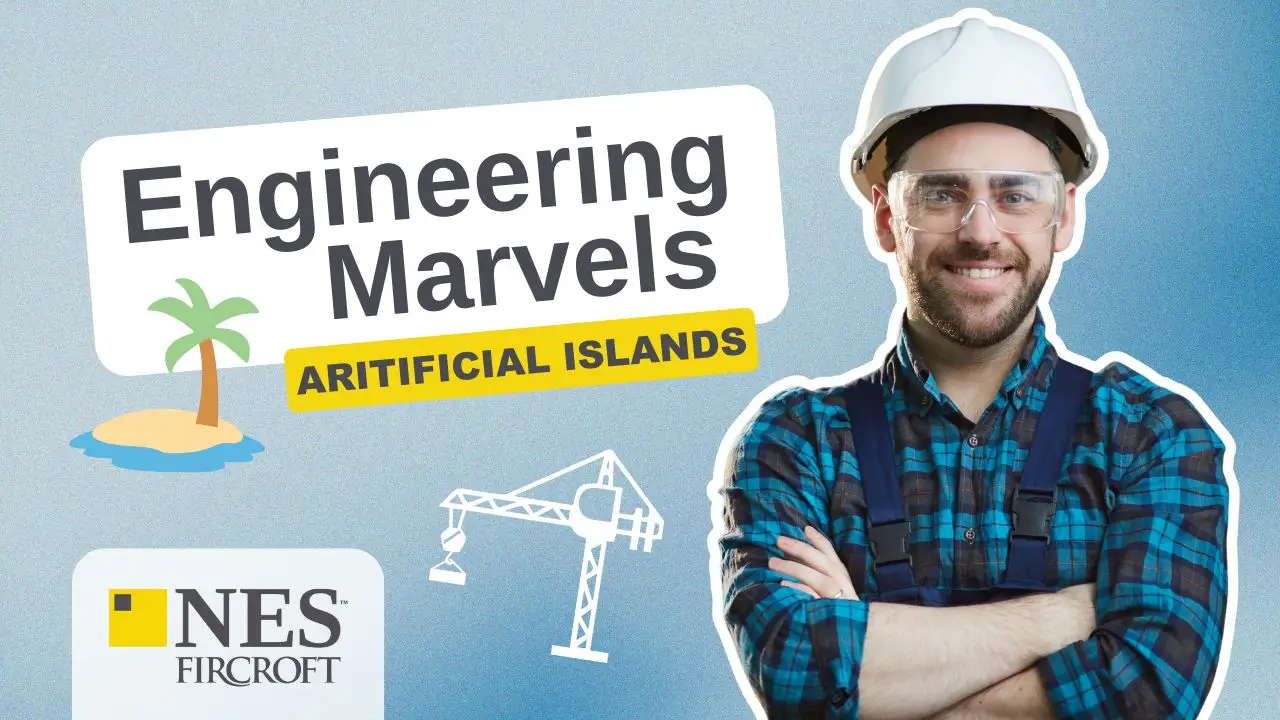Being Female In A Male Dominated Industry - Networking For Career Success
26 Feb, 20203:27Having a strong business network is an important resource in gaining access to new job roles...

Having a strong business network is an important resource in gaining access to new job roles and achieving promotion opportunities. But in some scenarios, such as for internationally mobile engineers, this can be a difficult task with both locational and cultural differences to consider.
Networking across cultural barriers can be even more challenging for female engineers who may find themselves as the minority gender and working in locations with conservative cultures where perceptions of women and their role in society may differ to that of Western attitudes. This can mean more effort is required for a female to establish themselves in their industry vertical. Here, we’re drawing upon several female engineers’ networking experiences to provide you with some tips on how to improve your network whilst working abroad.
Why Networking is Important for Engineers
Networks are informal relationships with relevant sector-related parties that are built and maintained by their members to provide reciprocal access to information and resources. Networking usually involves developing a range of contacts to reach into a wide realm of disciplines, and opening up opportunities for the various network members to achieve work benefits. The creation of valuable social capital through mutually beneficial network contacts is particularly important in the context of international mobility, which often goes hand in hand with engineering-related assignments.
When working abroad you can become separated from your home-based business contacts. Engineers who have undertaken a series of expatriate assignments advise that maintaining ties within your professional discipline back home is crucial to career success. Una is on her third expatriate assignment in North Africa on a long-term posting and notes:
"Your career is developed by your professional family, not necessarily by the people that you work with directly, and so if you don’t do enough to get back to your home country to see your professional peers, then it is possible that you do stagnate in the position.”
Experienced expatriates such as Milly who’s also on her third expatriate assignment, now in Central Asia, highlights the importance of being highly proactive in building and maintaining appropriate professional networks locally within your discipline:
“You’ve got to be out there, you’ve got to be ambitious. So if you are quietly competent and do all sorts of work behind the scenes, you might get there but you are more likely to get there by networking.”
Networking in a Male Dominated Industry
While the number of women in technical sectors, such as oil and gas, has greatly increased over the years there are still few female engineers in the industry and some women can find network integration intimidating - especially those who are new to their expatriate role and international location.
Don’t see a lack of female colleagues as a barrier – regardless of gender, entering technical networks and engaging with your team are helpful ways of getting your capabilities known amongst your peers. Xanthe, who is on her second expatriate assignment, currently a long-term posting in West Africa, suggests that you start with your direct line manager or their boss:
“You have to be the one to proactively discuss and network with your managers. Talk to them and see if there are opportunities available and seek them out.”
Our interviewees agree that gaining access to technical networks is very important to career success. Linda is a highly experienced assignee on her fourth expatriate assignment, now based in Australasia. She gives the following example as to how you might widen out your network from your direct managers:
“I would get on the phone and I would call the new AGM and I would ask them if there are any jobs going and I would get on to the technical manager and ask for an introduction to the commercial manager out there, because I don’t have a contact there with the commercial manager.”
The Importance of Internal and External Networks
Connections within your current company are important but entering into an external network is vital to career success. Careers solely within one organisation are in decline; it’s more usual for individuals to engage in ‘boundaryless’ careers. This means that career development and promotional opportunities should also be sought externally, rather than solely from a current employer. To gain access to information about job roles in different firms across the world, wider industry networking is really helpful.
Try to extend your connections widely and foster contacts across your industry in a range of global locations. This will help you to extend your international career and gain experience in different companies and countries. Harriet is currently on a long-term posting in Europe and has carried out multiple assignments with different oil industry employers. She suggests making the most of contacts whenever and wherever you meet them:
“People have always known that I’ve been in South America, that I speak foreign languages, but I am interested in international stuff and I have never made that a secret. So whenever there were international opportunities they always thought about me.”
Looking for more Career Advice? NES can help engineers advance their careers
Over the last 40 years, we’ve placed thousands of personnel into roles that span the engineering and technical sectors - we‘re also proud to support over 12,000 temporary personnel on contracts across the planet. Whether you’re actively looking for a new job or are currently employed, we have career advice that will provide you with some useful, practical tips for advancing in your career.
Suggested reading
Shortland, S. (2014) ‘Networking’ in APA Handbook of Career Intervention (Vol 2), Hartung, P., Savickas, M.L. and Walsh, W.B. (eds.) American Psychological Association (APA) Books, pp. 351-363.
Shortland, S. (2011) ‘Networking: a valuable career intervention for women expatriates?’ Career Development International, Vol. 16, No. 3, pp. 271-292.










